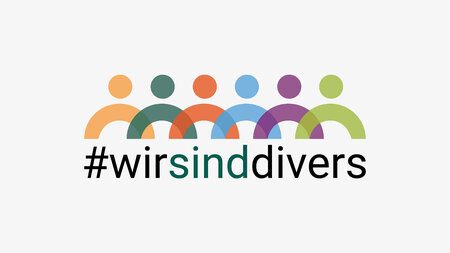Eintrag in der Universitätsbibliographie der TU Chemnitz
Volltext zugänglich unter
URN: urn:nbn:de:bsz:ch1-qucosa2-799644
Hädecke, Kenneth
Zanger, Cornelia (Univ.-Prof. Dr.) ; Leischnig, Alexander (Univ.-Prof. Dr.) (Gutachter)
Expectations and Obstacles of Smart Services:
The Role of Transparency, Privacy and Trust for the Acceptance and Adoption of Smart Services
Erwartungen und Hindernisse des Smart Services
Die Rolle von Transparenz, Privatsphäre und Vertrauen für die Akzeptanz und Adaption von Smarten Services
Kurzfassung in englisch
Over the last decades the use of technology has drastically increased and its influence on services has been rising constantly (Meuter et al., 2005; Bitner et al., 2010; Rust and Huang, 2014). The digital revolution has paved the way for new predictive service concepts that are linked to the contents of this dissertation. Despite the many studies that have been conducted (e.g., Allmendinger and Lombreglia, 2005; Hubert et al., 2019; Kabadayi et al., 2019; Kashef et al.,2021; Klein et al., 2018; Timeus et al., 2020) and the amount of literature on this subject (e.g., Rehse et al., 2016; Pena-Rios et al., 2018; Paschou et al., 2018), there are still many gaps in the current status of its research. The industry is constantly introducing new phraseology to create unique selling propositions, such as service 4.0 in the automotive sector, which has not yet been scientifically defined. Against this backdrop, the first step of this dissertation was to define the wording “service 4.0” in the automotive context and to compare it with the fairly more common wording of “smart service”. By analysing interviews with knowledgeable respondents, the first out of four research papers describe the characterising components of service 4.0 and demands a unification of the wordings service 4.0 and smart services. Therefore, the further studies and associated papers use the expression 'smart services'. Additionally, the first study gives an overview of what practitioners expect of this kind of service in the automotive context.However, the development and implementation of new services require knowledge about customers’ needs and expectations to establish the services successfully. This leads to the question, what do customers actually expect of a predictive service in the automotive sector or a car workshop? Research paper II followed these thoughts and analysed interviews and a group discussion with consumers of different ages, genders, levels of education and origins in Germany. Based on the expectations, it introduced five categories of consumers’ and provides an overview of obstacles to the acceptance of smart services. The results of the qualitative studies reveal that many of the obstacles and expectations are concerned with data safety and trust. Furthermore, the results show that perceived transparency seems to influence trust.
While the results of research paper II show the different influencing factors of trust in connection with the acceptance of smart services, research paper III tries to develop a new framework that reflects these relations. To do so, a quantitative study was conducted based on a sample of more than 1,000 consumers’ who answered the questionnaire. Based on the Technology Acceptance Model, the developed framework explains the connection between perceived transparency, privacy risks, perceived security, perceived control and initial trust. Furthermore, the results help to better understand the variance of perceived usefulness by employing the construct of initial trust. Moreover, the construct of perceived firm transparency has a strong influence on initial trust.
The final research paper employed a qualitative research design to describe in detail the obstacles to the acceptance of smart services. It explored two main obstacle categories and one subcategory that describe why customers reject smart services and what their concerns are. Finally, research paper IV used an experiment to explore whether video clips can be used to increase the perceived firm transparency and control. The results of the empirical study show, that video clips seem to increase the perceived firm transparency and control. Therefore, the combined results of research papers III and IV could be a powerful tool for practitioners enabling them to increase initial trust and acceptance of smart services through the use of video clips. This article presents an overview the conducted studies and summarizes the results. Furthermore, it summarizes the underlying theories and builds a theoretical framework.
All in all, this dissertation deepens the understanding of the acceptance of smart services using the example of the automotive sector, and the results should be valuable from a theoretical as well as from a practical point of view.
| Universität: | Technische Universität Chemnitz | |
| Institut: | Forschung Prof. Zanger | |
| Fakultät: | Fakultät für Wirtschaftswissenschaften | |
| Dokumentart: | Dissertation | |
| Betreuer: | Zanger, Cornelia (Univ.-Prof. Dr.) | |
| SWD-Schlagwörter: | Trust | |
| Freie Schlagwörter (Englisch): | Smart Service , Trust , Acceptance , Transparency , Technology Acceptance Model | |
| DDC-Sachgruppe: | Wirtschaft, Handel, Internationaler Handel | |
| Sprache: | englisch | |
| Tag der mündlichen Prüfung | 05.07.2022 |




